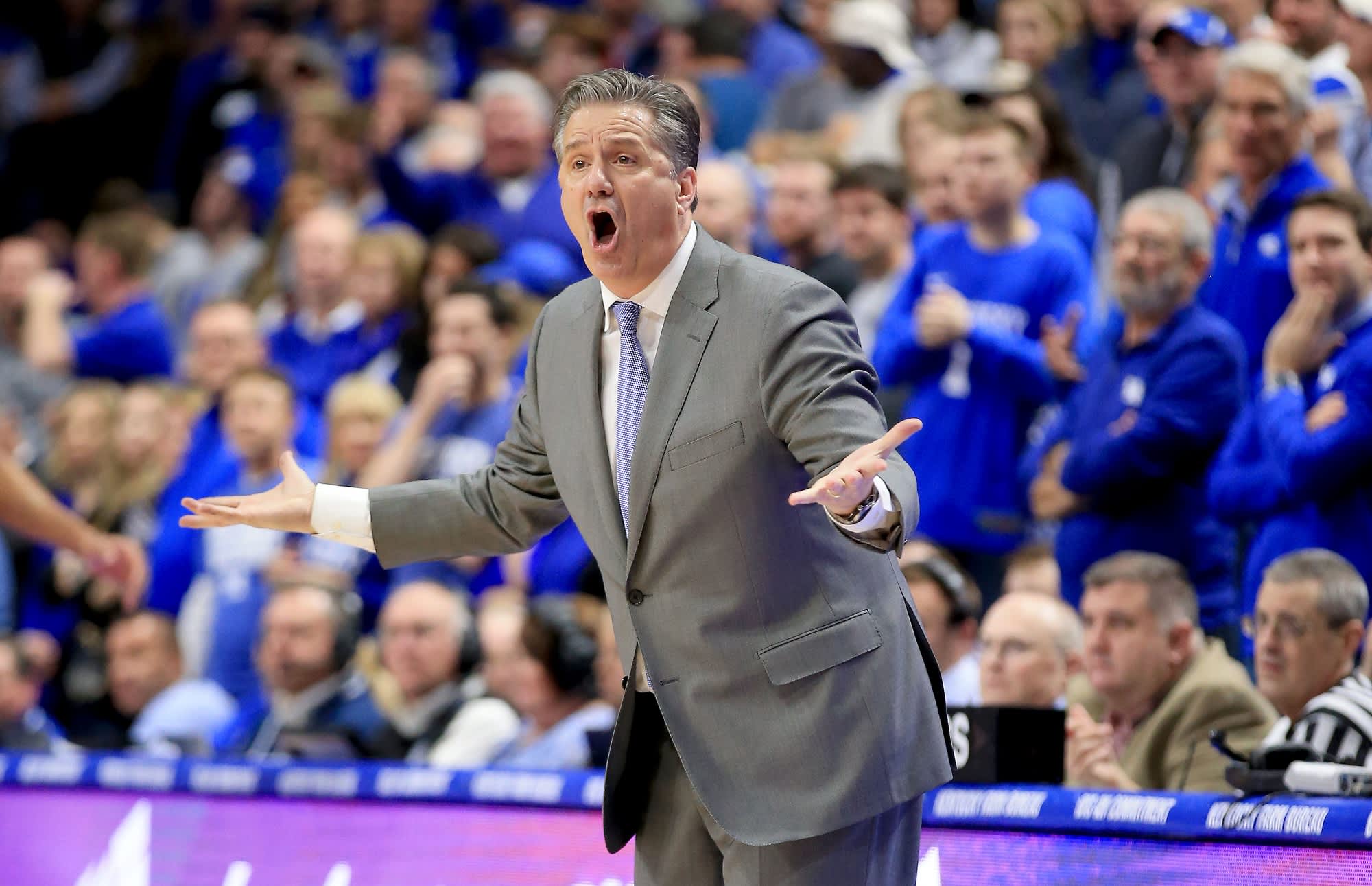Top-Earning College Softball Coaches

College softball coaches are highly compensated, with top earners receiving salaries that reflect their success and contributions to their programs. These coaches play a pivotal role in building strong teams, developing athletes, and attracting talented players.
Top 10 Highest-Paid College Softball Coaches
The salaries of college softball coaches vary significantly, with factors such as program success, fundraising abilities, and institutional resources influencing compensation. Here are the top 10 highest-paid college softball coaches in the US, based on publicly available data:
- Pat Murphy, University of Alabama, $700,000: Pat Murphy is the head coach of the Alabama Crimson Tide softball team. He has led the team to numerous NCAA tournament appearances and a Women’s College World Series championship in 2012. His salary reflects his long-standing success and the program’s consistent national prominence.
- Mike Candrea, University of Arizona, $650,000: Mike Candrea is the head coach of the Arizona Wildcats softball team. He has won eight NCAA championships with the Wildcats, making him one of the most decorated coaches in college softball history. His salary is a testament to his legacy and the program’s sustained excellence.
- Jodi Wright, University of Oklahoma, $600,000: Jodi Wright is the head coach of the Oklahoma Sooners softball team. She has led the Sooners to three NCAA championships, including back-to-back titles in 2016 and 2017. Her salary reflects her recent successes and the program’s national dominance.
- Heather Tarr, University of Washington, $550,000: Heather Tarr is the head coach of the Washington Huskies softball team. She has led the Huskies to two Women’s College World Series appearances and numerous NCAA tournament appearances. Her salary reflects the program’s consistent success and her commitment to developing players.
- Patty Gasso, University of Oklahoma, $550,000: Patty Gasso is the head coach of the Oklahoma Sooners softball team. She has led the Sooners to five NCAA championships and is considered one of the most successful coaches in college softball history. Her salary reflects her program’s sustained excellence and her contributions to the sport.
- Lori Williams, University of Florida, $500,000: Lori Williams is the head coach of the Florida Gators softball team. She has led the Gators to two Women’s College World Series appearances and numerous NCAA tournament appearances. Her salary reflects the program’s consistent success and her commitment to developing players.
- Tony Annese, University of Michigan, $450,000: Tony Annese is the head coach of the Michigan Wolverines softball team. He has led the Wolverines to numerous NCAA tournament appearances and a Women’s College World Series appearance in 2015. His salary reflects the program’s consistent success and his commitment to developing players.
- Jay Miller, University of Texas, $400,000: Jay Miller is the head coach of the Texas Longhorns softball team. He has led the Longhorns to numerous NCAA tournament appearances and a Women’s College World Series appearance in 2005. His salary reflects the program’s consistent success and his commitment to developing players.
- Megan Smith, University of Missouri, $350,000: Megan Smith is the head coach of the Missouri Tigers softball team. She has led the Tigers to numerous NCAA tournament appearances and a Women’s College World Series appearance in 2011. Her salary reflects the program’s consistent success and her commitment to developing players.
- Kelly Ford, University of Arkansas, $300,000: Kelly Ford is the head coach of the Arkansas Razorbacks softball team. She has led the Razorbacks to numerous NCAA tournament appearances and a Women’s College World Series appearance in 2018. Her salary reflects the program’s consistent success and her commitment to developing players.
Factors Influencing Salaries: Highest Paid College Softball Coaches

Highest paid college softball coaches – The compensation of college softball coaches is influenced by a variety of factors, including program success, conference affiliation, and the overall financial strength of the institution. Winning records, national championships, and overall program success play a significant role in determining a coach’s salary. Coaches who consistently lead their teams to success are highly sought after and can command higher salaries.
Winning Records and National Championships
Winning records and national championships are among the most significant factors that contribute to high salaries for college softball coaches. Coaches who lead their teams to consistently winning seasons and national championships are in high demand and can negotiate lucrative contracts. For example, the coach of the University of Oklahoma softball team, Patty Gasso, has led the team to multiple national championships and consistently ranks among the highest-paid coaches in the sport.
Conference Affiliation
The conference in which a coach’s team competes also plays a role in their salary. Coaches in Power Five conferences, such as the SEC, ACC, and Big Ten, typically earn higher salaries than coaches in other conferences. These conferences often have larger budgets and higher media exposure, which allows them to attract top coaches and offer competitive salaries.
- For example, the average salary for a head softball coach in the SEC is significantly higher than the average salary for a head coach in a smaller conference.
Program Success
Program success, beyond winning records and championships, also contributes to a coach’s salary. This includes factors such as the overall strength of the program, the number of players drafted by professional teams, and the team’s performance in the NCAA Tournament.
- Coaches who build successful programs that consistently produce top talent are highly valued and can negotiate higher salaries.
Financial Strength of the Institution
The financial strength of the institution also plays a role in a coach’s salary. Institutions with larger endowments and higher athletic budgets can afford to pay their coaches more.
- For example, a coach at a private university with a large endowment may earn a higher salary than a coach at a public university with a smaller budget.
Coaching Salaries in Context

While college softball coaches command impressive salaries, it’s crucial to understand their compensation within the broader landscape of collegiate athletics. Comparing their earnings to those of coaches in other sports provides valuable insights into the factors driving salary disparities.
Comparison to Other Sports
The salaries of college softball coaches often pale in comparison to their counterparts in revenue-generating sports like football and men’s basketball. This disparity can be attributed to several factors.
- Revenue Generation: Football and men’s basketball programs often generate substantial revenue through ticket sales, television contracts, and merchandise, allowing for larger athletic budgets and higher coaching salaries.
- National Popularity: Football and men’s basketball enjoy widespread national popularity, leading to greater media attention, fan engagement, and, consequently, higher earning potential for coaches.
- Historical Factors: These sports have historically held a dominant position in collegiate athletics, resulting in a legacy of higher salaries and greater investment in coaching talent.
Factors Influencing Salary Disparities, Highest paid college softball coaches
Several factors contribute to the salary differences between coaches in different sports, including:
- Sport’s Popularity and Revenue: Sports with a larger fan base and higher revenue generation potential tend to attract more lucrative coaching positions. This is particularly true for football and men’s basketball, where high-profile programs can generate millions of dollars annually.
- National Visibility and Media Attention: Coaches in sports with national visibility and media coverage often command higher salaries due to their increased brand recognition and potential for endorsements.
- Athletic Department Budgets: Athletic departments with larger budgets can afford to offer higher salaries to attract top-tier coaching talent. These budgets are often influenced by factors like university endowments, fundraising efforts, and alumni donations.
Fundraising, Alumni Donations, and Athletic Department Budgets
Fundraising, alumni donations, and athletic department budgets play a significant role in determining coach salaries.
- Fundraising: Athletic departments often rely on fundraising efforts to supplement their budgets and support coaching salaries. These efforts can involve soliciting donations from alumni, corporations, and other stakeholders.
- Alumni Donations: Alumni donations are a crucial source of funding for many athletic programs. Loyal alumni who support their alma mater’s athletic teams often contribute financially to enhance the program’s resources, including coaching salaries.
- Athletic Department Budgets: The overall budget of an athletic department directly influences the salaries it can offer to coaches. Larger budgets, often fueled by fundraising and alumni donations, enable athletic departments to attract and retain top coaching talent.
The salaries of college softball coaches are often a topic of discussion, with some arguing that the high pay reflects the dedication and expertise required to lead a successful program. It’s fascinating to consider how these coaches find their own creative solutions to challenges, much like the way harry the painter swings from his chair to reach different parts of the canvas.
Just as Harry’s approach demonstrates flexibility and resourcefulness, so too do successful coaches need to adapt their strategies to the unique demands of each season and team.
It’s interesting to see the disparity in compensation between college softball coaches and professional athletes. While the highest paid college softball coaches might earn a respectable salary, it pales in comparison to the astronomical figures earned by top players in leagues like the NFL.
Take a look at the 25 highest paid NFL edge rushers and you’ll see what I mean. The dedication and skill required in both sports is undeniable, yet the financial rewards are vastly different, which begs the question of fair compensation across all levels of athletics.
